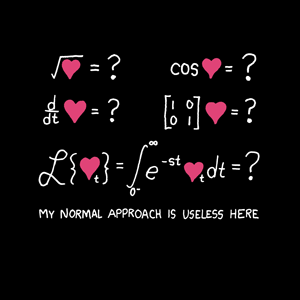teaching this theory course is like teaching for the first time again. it's hard to figure out what they don't know how to do.
for example, take definitions:
over several office hours, i think a handful of my students have started to appreciate them as a (necessary) starting point. for problems in naive set theory, sometimes it's best to consider an arbitrary point in a given set, walk through the logic, and slowly assemble our conclusion.
while grading quizzes, however, quite a few papers seem to demonstrate this arcane manipulation of symbols. admittedly, set operations and relations like
$\cup$, $\cap$, $\setminus$, $\subseteq$
are like arithmetic, but only after one proves theorems akin to rules of arithmetic!
i suspect that they are too used to computing without reflecting on their computations.
ideally, i'd sit each of them down for a "how to write a proof" tutorial.
we'd introduce ourselves. i'd figure out the student's background to determine how to fit my explanations in a form they'd most readily understand.
i'd choose a theorem. then we'd "go in reverse" -- dissect the proof, learn where it came from, how it was written.
then i'd choose a related theorem with a slightly different proof, and go forwards: think about why it's true, jot down some ideas, write down a good proof.
let me emphasize:
ideally. i have 30 students in this course alone; in my other course, 64 students are learning linear algebra from me.
there's just no time.
i don't have the energy.
maybe some students don't
want to learn how to write a good proof: they could be applied persons or future high school teachers
[1] and to them, this theory course is just another hurdle between them and what they really want to do.
then again, for those (few?) potential mathematicians sitting in class:
shouldn't someone tell them that they can't learn everything just by sitting passively in lectures?
shouldn't someone tell them that there is a craft to proof,
that maths is a language that requires practice for fluency?
shouldn't someone tell them that one doesn't become a mathematician by accident, and that discipline is just as important as curiosity?
i've never been good at telling others what to do.
teaching this course involves, i think, an understated responsibility of mentoring. i used to say that i'm too young to be someone's mentor ..
.. but that's not it. forget age: i'm too impatient and reluctant to be anyone's mentor. so far i think i'm teaching this theory course competently, but not particularly well.
[sighs]
i guess, at some point in my life, i'd have had to teach a course like this. inevitably it'd be a learning process for me .. and, of course, it happens in my last semester as a postdoc at this university ..
[1] honestly, that's no excuse. the fact that one of my students might be training the next generation of young people is a reason for why he/she should know how to write a good proof .. not against.


